Latest defense corruption case goes after officials allegedly tied to deadly ammunition shortage
It would have been an ordinary Ukrainian story: Officials and their associates accused of embezzling money on procurements and using procedural trickery to avoid criminal charges. The difference is in the body count. The officials worked for the Defense Ministry and were supposed to procure 100,000 mortar shells by February 2023.
None ever materialized. This alleged Hr 1.5 billion (£39.6 million) scheme coincided with a severe ammunition deficiency at the peak of the bloodiest battle of the full-scale war. Ukrainians who fought in Bakhmut described facing down unending Russian attacks while wrestling with severe shortages of fire support.
Some mortarmen at Bakhmut said they got just 10 shells per day, enough for several minutes of shooting. Total casualties are not known to the public but one unit said it was down to half strength in two months. "20,000 rounds should have been delivered when there was hell around Bakhmut but none ever were.
And there was a real shortage of mortar rounds in that area," watchdog Anti-Corruption Action Center head Vitaliy Shabunin told the Kyiv Independent. Worse, the intermediary firms and people involved may have ties with Russia, according to an investigation by Hromadske.
 Oleksandr Liyev, former head of the Department of Military Technical Policy of Ukraine. (Oleksandr Liyev/Facebook)
Oleksandr Liyev, former head of the Department of Military Technical Policy of Ukraine. (Oleksandr Liyev/Facebook)
Police are investigating five people of possible involvement, including Oleksandr Liyev and Toomas Nakhkur, the former and current heads of a Defense Ministry department that buys weapons. The others are the director and deputy of a Ukrainian business and a supervisory board member of a Slovakian company.
If convicted, they face up to 12 years. Liyev was detained and released, while Nakhkur was fitted with an electronic bracelet. A High Anti-Corruption Court judge rejected the request to hold Liyev in pre-trial detention, and said that the case should have been brought to him by the National Anti-Corruption Bureau (NABU) and the Specialized Anti-Corruption Prosecutor's Office (SAPO), as procedure calls for.
But the National Police and the Prosecutor General's office, which brought Liyev's case to court, have yet to sign it over to the anti-corruption specialists. In the morass of Ukrainian law enforcement, such tricks may be used to bury a probe deliberately. "This procedural mistake, which seems to me to be deliberate, seriously undermines the possibility of future punishment," Shabunin said.
This will become clearer on Feb.
5 when the status of Liyev's pretrial detention and bail is determined. In a call with the Kyiv Independent, and public comments Liyev rejected the accusations and said the suspicion notice was "ridiculous."
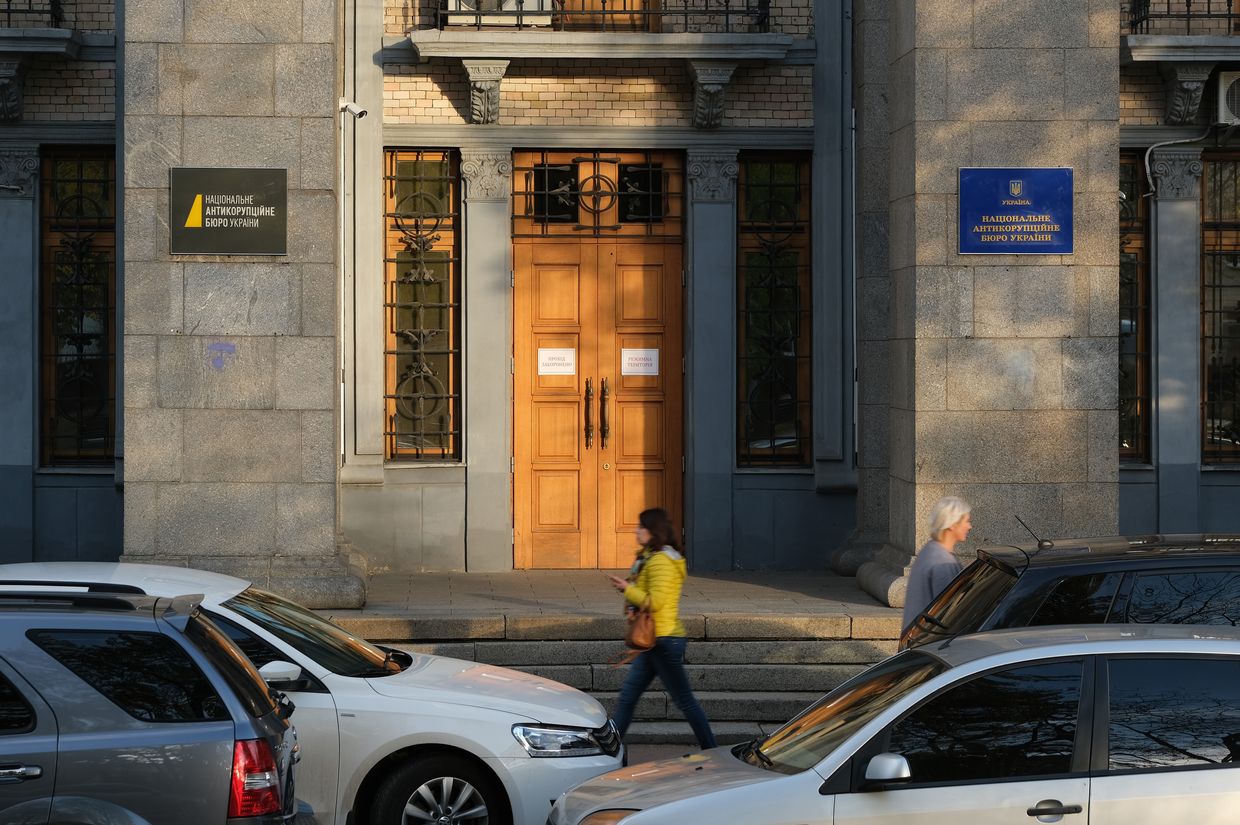 People walk past the offices of NABU, the National Anti-Corruption Bureau of Ukraine, on October 01, 2019 in Kyiv, Ukraine. (Sean Gallup/Getty Images)
People walk past the offices of NABU, the National Anti-Corruption Bureau of Ukraine, on October 01, 2019 in Kyiv, Ukraine. (Sean Gallup/Getty Images)
Nakhkur, who used to be Liyev's subordinate before taking his job at the Defense Ministry in February 2023, was suspended on Feb.
1, after being notified of suspicion on Jan.
27. This episode is the latest in a series of the ministry's corruption scandals linked to procurement of supplies and ammunition.
According to Bohdana Yarova, a member of the Public Anti-Corruption Council at the Defense Ministry and adviser to Deputy Defense Minister Dmytro Klimenkov, the documents pointing to this latest embezzlement scheme "were repeatedly handed over to various law enforcement agencies" during former minister Oleksii Reznikov's term, to no avail. The case only began to advance after Reznikov was fired in September 2023 and replaced by the new defense minister Rustem Umerov. His team, which has more people tied to reformist movements and civil society, promised to clean up corruption and change the culture that lets it flourish.
"These are truly revolutionary changes," Yarova wrote on Facebook, commending the charges against Lieyv, Nakhur, and their alleged co-conspirators.
Ministry officials suspected
Liyev ran the department from summer 2022 to February 2023. He resigned following allegations about his past support for Russia and its occupation of Crimea, which he denied. A prosecutor told the court in late January that Liyev was detained in the western city of Chernivtsi on his way to cross the border.
According to Liyev, who now works in a company engaged in humanitarian demining, he was supposed to go on a business trip to Slovakia to inspect demining vehicles headed to Ukraine and return by Feb.
5 to attend a meeting at the Economy Ministry. In his interview with the Kyiv Independent, Liyev denied involvement in the alleged embezzlement scheme. He claimed that he initiated the arrest of the accounts of a company thought to be involved, after it failed to deliver the shells, and asked sarcastically why he would do it if he was an accomplice.
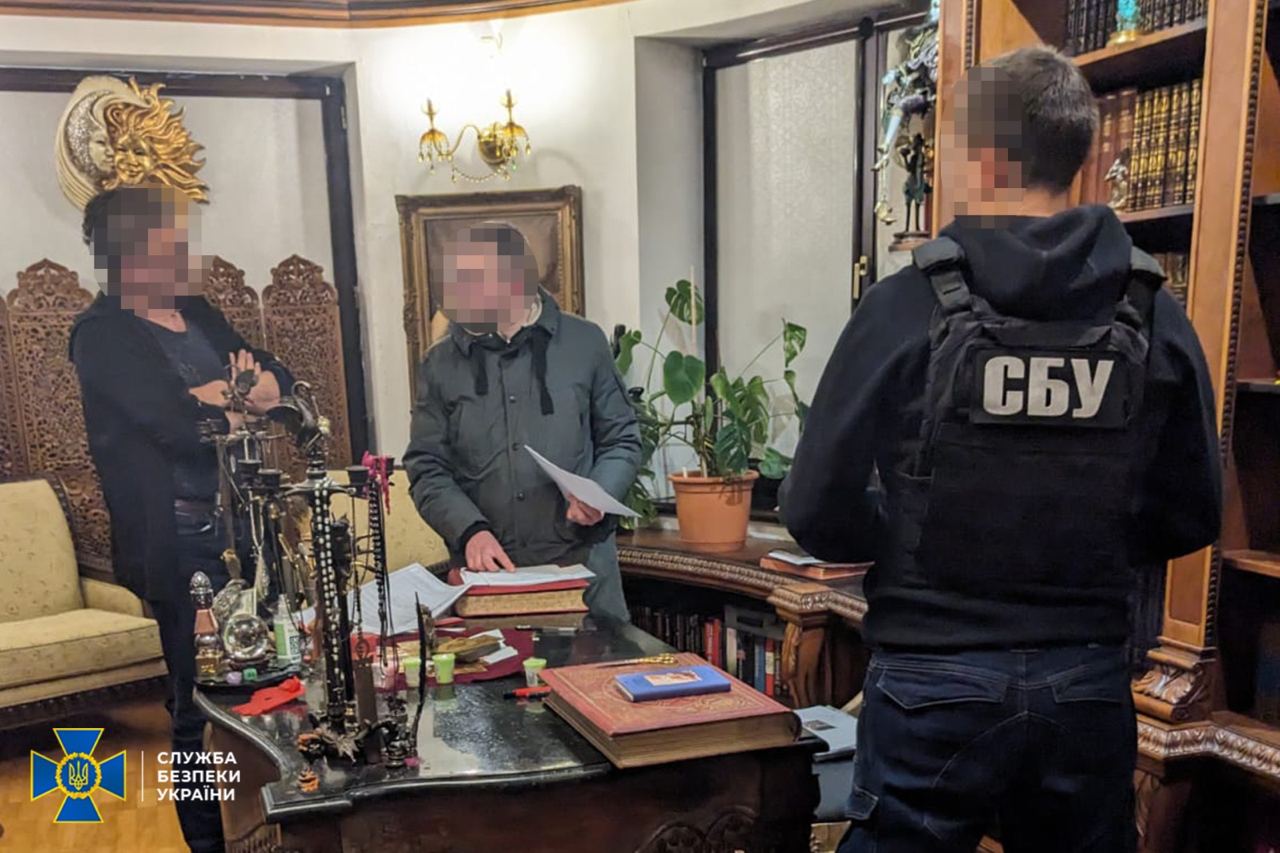 Ukraine's Security Service discovered a corruption scheme on Jan.
Ukraine's Security Service discovered a corruption scheme on Jan.
28, 2024, related to the procurement of almost 100,000 mortar shells, amounting to nearly £40 million. (Security Service of Ukraine/Telegram)
The company is called Lviv Arsenal, which has been court-ordered to pay Hr 1.5 billion (£39.6 million) for its failure to deliver the ammunition ordered by Defense Ministry when Liyev worked there. So far, law enforcers have only managed to recover Hr 818 million (£21.6 million) from the company's accounts. Another company allegedly involved is Sevotech, registered in Slovakia.
It was involved in criminal cases regarding earlier failures to deliver helmets and bulletproof vests to the Defense Ministry in 2022. According to Hromadske, there is a third alleged player, Croatia intermediary WDG Promet. It's owned by a son of the arms dealer Zvonko Zubak, who is linked to Czech businessman Petr Pernycka, who has good connections in Russia.
Pernycka told a Czech court that he keeps the document archive of WDG's parent company inside Russia. According to the police, Nakhkur was facilitating and disguising the actions of other suspects. Both Liyev and Nakhkur allegedly knew that the contractors lacked relevant export licenses and that there were open criminal cases concerning earlier procurement contracts with Sevotech.
Liyev denied in an interview with the Kyiv Independent that he or other officials in his department knew about the earlier failed contract on helmets and bulletproof vests because it was authorized by another department with which they did not communicate. The case has become one of several corruption scandals concerning the ministry. The two major ones, which preceded Reznikov's ousting, concerned inflated prices for food supplies and low-quality winter jackets.
At the turn of the year, law enforcers arrested five people, including Lviv businessman Ihor Hrynkevych and his son, Roman, for allegedly supplying the Defense Ministry with low-quality military clothing, causing the ministry to lose Hr 934 million (£24.9 million). The father used to be a leading supplier with 23 contracts, all of which were terminated. Overall, according to Prosecutor General Andriy Kostin, seven defense officials were charged in 2023 and just one case has made it to court so far.
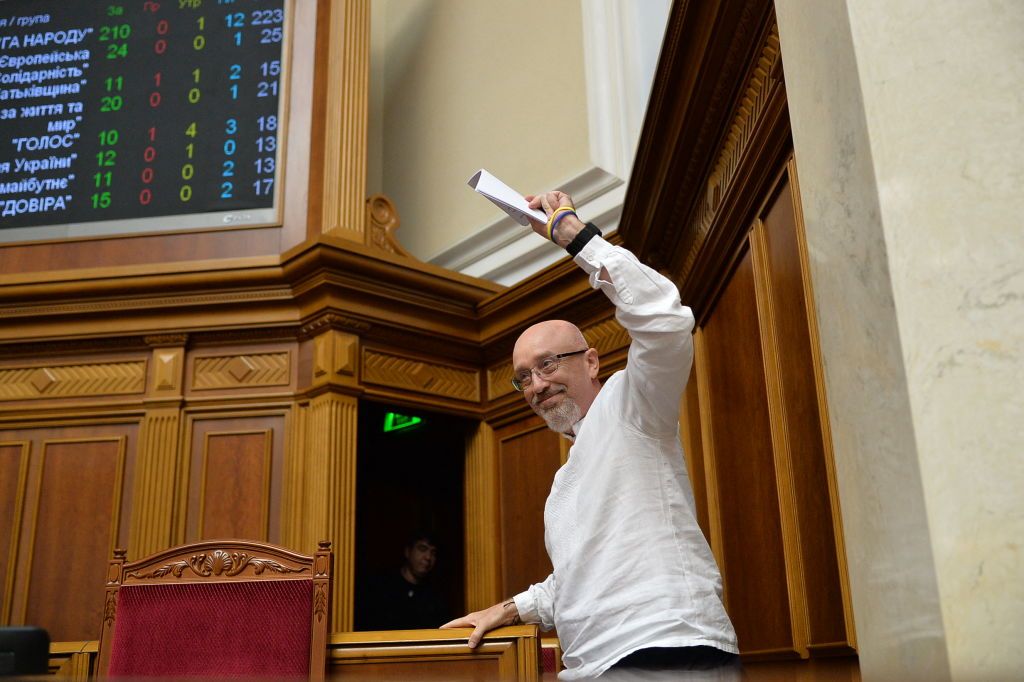 Now-former Defense Minister Oleksii Reznikov waves during the voting for his resignation in Ukraine's parliament in Kyiv on Sept.
Now-former Defense Minister Oleksii Reznikov waves during the voting for his resignation in Ukraine's parliament in Kyiv on Sept.
5, 2023. (Photo by Andrii Nesterenko / AFP via Getty Images)
There were also probes into procurements of personal armor for Hr 1.4 billion (£37.3 million) and winter uniforms for Hr 945 million (£25.2 million). Additional embezzlement of more than Hr 250 million (£6.7 million) is still being investigated. Between September 2023 and January 2024, the Defense Ministry recovered Hr 21.2 million (£570,000) in 78 court decisions, mostly related to contract disputes.
Some Hr 12.2 million (£325,000) were collected in a few other cases, the ministry reported in late January. The ministry also recently won five international arbitrations with foreign suppliers and had to be paid £6.9 million and 16.5 million euros. Still, the Defense Ministry has not yet received purchased goods worth over Hr 30 billion (£800 million), according to Tetiana Nikolaienko, a journalist and a member of the Public Anti-Corruption Council at the Defense Ministry.
Signs of improvement in defense procurement?
Days after law enforcement officers issued suspicion notices in the mortar shells purchase case, the Defense Ministry appointed a new head of the state enterprise Defense Procurement Agency, Maryna Bezrukova.
She replaced Volodymyr Pikuzo, who had led the company since its creation in August 2022. ANTAC head Vitaliy Shabunin described Bezrukova as a "professional with an impeccable reputation." The appointment of the official who transformed the procurement system of energy operator Ukrenergo is seen by watchdogs as a chance for a similar improvement in the Defense Ministry, where Bezrukova will be responsible for procuring weapons.
Meanwhile, Arsen Zhumadilov, the head of the state enterprise Defense Goods Procurement Agency, launched in December 2023, is now in charge of rear procurement, buying everything including clothing, fuel, body armor, and helmets. Zhumadilov previously had a very similar job procuring medications for the health ministry -- his team was praised by civil society organizations.
As Bakhmut counteroffensive lags, soldiers burnt out from horrors of war Editor's note: Some soldiers interviewed for this story declined to give their last names due to security issues amid the ongoing war in Ukraine.
DONETSK OBLAST - More than a month after his first assault operation near Bakhmut, 23-year-old soldier Oleksandr Mikulak still blames himself for not sav...
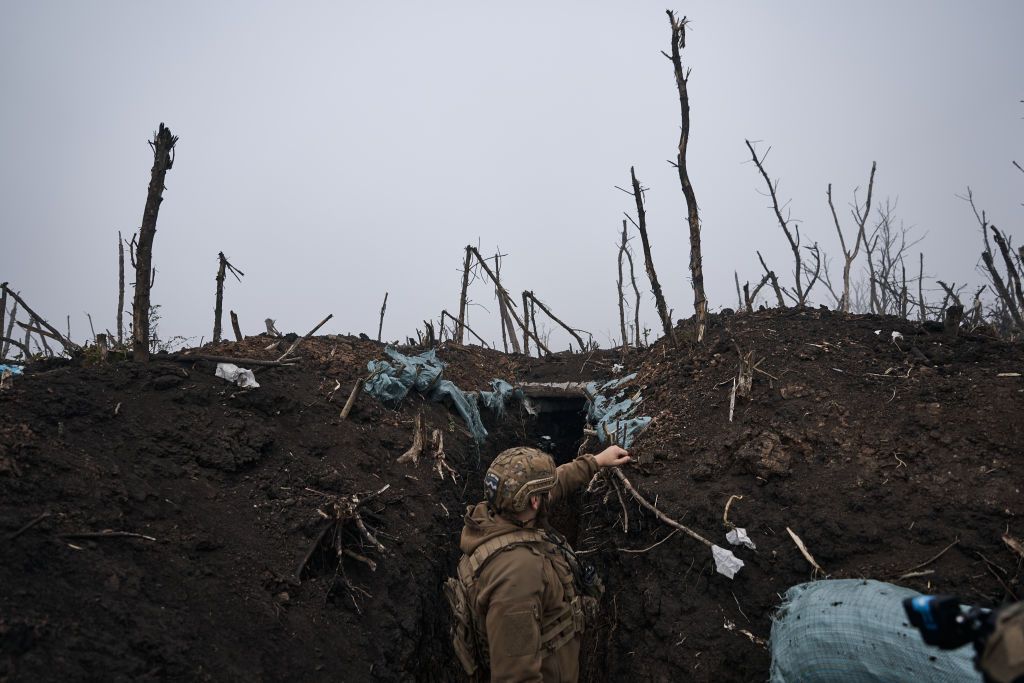
Shabunin told the Kyiv Independent that the contracts signed by the rear operator already showed savings. The company should also start procuring food once a new centralized system is launched. But its introduction seems stalling, and "new tricks are being found to avoid implementing it" in the second quarter of 2024, said Nikolaienko.
"I have concerns that we will see the old (market) players again. And I am not sure they will launch procurement by individual food groups, as they announced," she said. Nikolaienko also stressed the need for a transparent and thorough procedure for choosing a weapons supplier.
She said the prices must also be adequate since the logic used under the previous minister that the speed of delivery and quality are the first things to consider led to such cases as the failed contract on the shells.
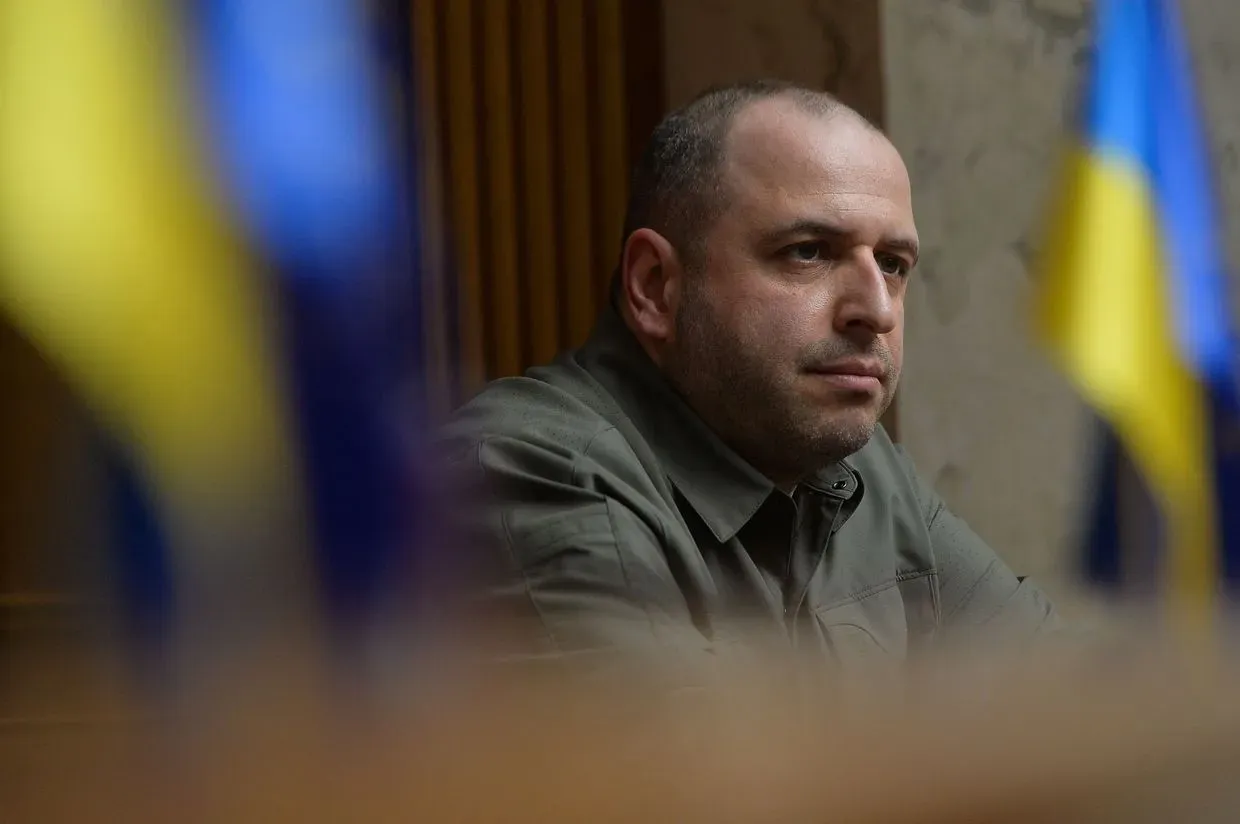 Rustem Umerov stands in the Ukrainian parliament during voting on his nomination as the Ukrainian defense minister in Kyiv on Sept.
Rustem Umerov stands in the Ukrainian parliament during voting on his nomination as the Ukrainian defense minister in Kyiv on Sept.
6, 2023. (Andrii Nesterenko/AFP via Getty Images)
Nikolaienko said the members of the Public Anti-Corruption Council had no meetings on weapons procurement with the Defense Ministry officials both under current and previous ministers. According to ANTAC, some arms contracts have already been transferred to the Defense Procurement Agency, but Nakhkur's department still processes the ones concluded earlier, which it shouldn't be doing. Shabunin said weapon procurement has been the most problematic.
The clothing, food, and fuel were sometimes overpriced or of poor quality, but at least they were delivered.
Deputy defense minister plans to transform ministry - here's how Stanislav Haider was hired to fix the defense ministry's institutional problems just as Ukraine entered the most difficult period of the war to date. The 37-year-old deputy minister looks youthful but for his graying strands of hair and he whimsically refers to the invading Russians as "the norther...
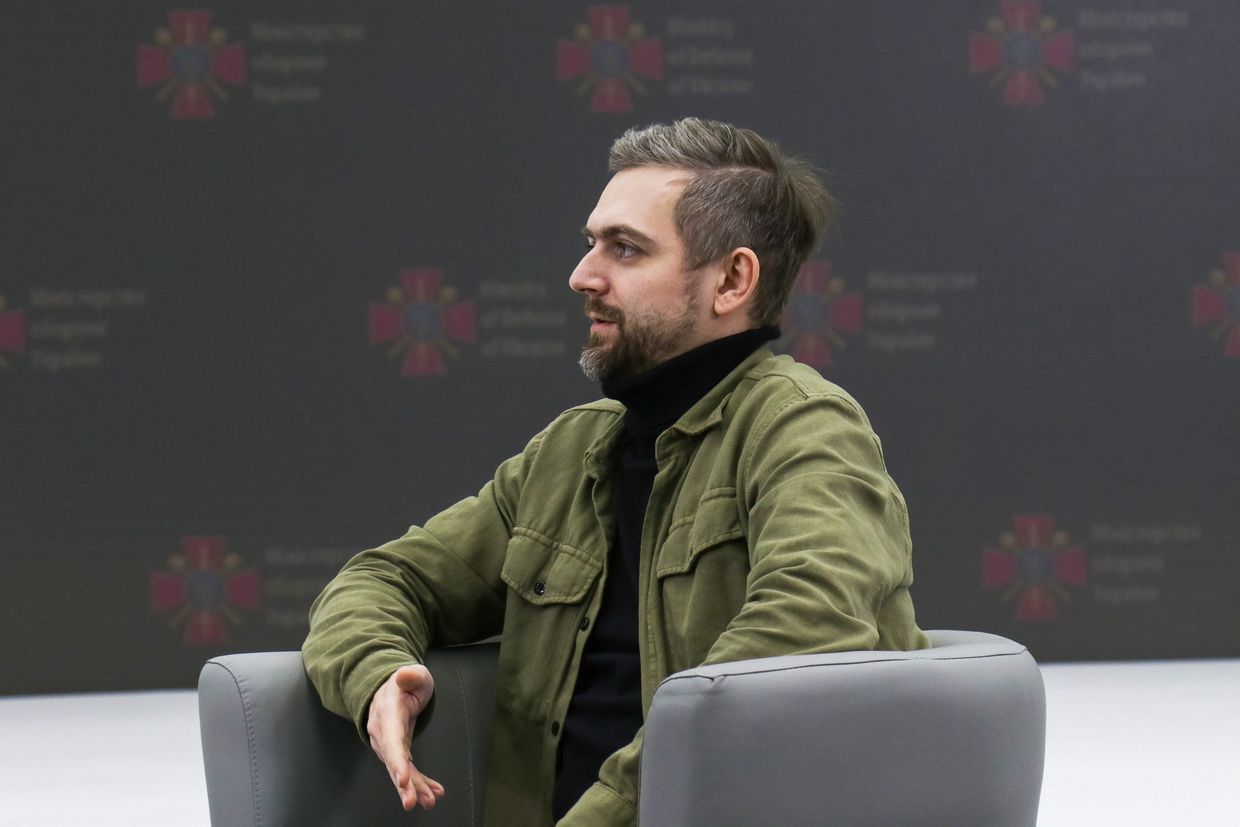
According to him, the latest investigations may have a "very positive" impact on providing military aid to Ukraine.
"Because we say that corruption exists, as it does in all countries, but we are really fighting it," said Shabunin. "Law enforcement officers are fighting, as are the new management of the Defense Ministry." Shabunin said for him an important indicator would be whether Nakhkur is fired from his job in Defense Ministry, not only suspended. "I don't understand how a person who has received a notice of suspicion continues to hold office," he said.